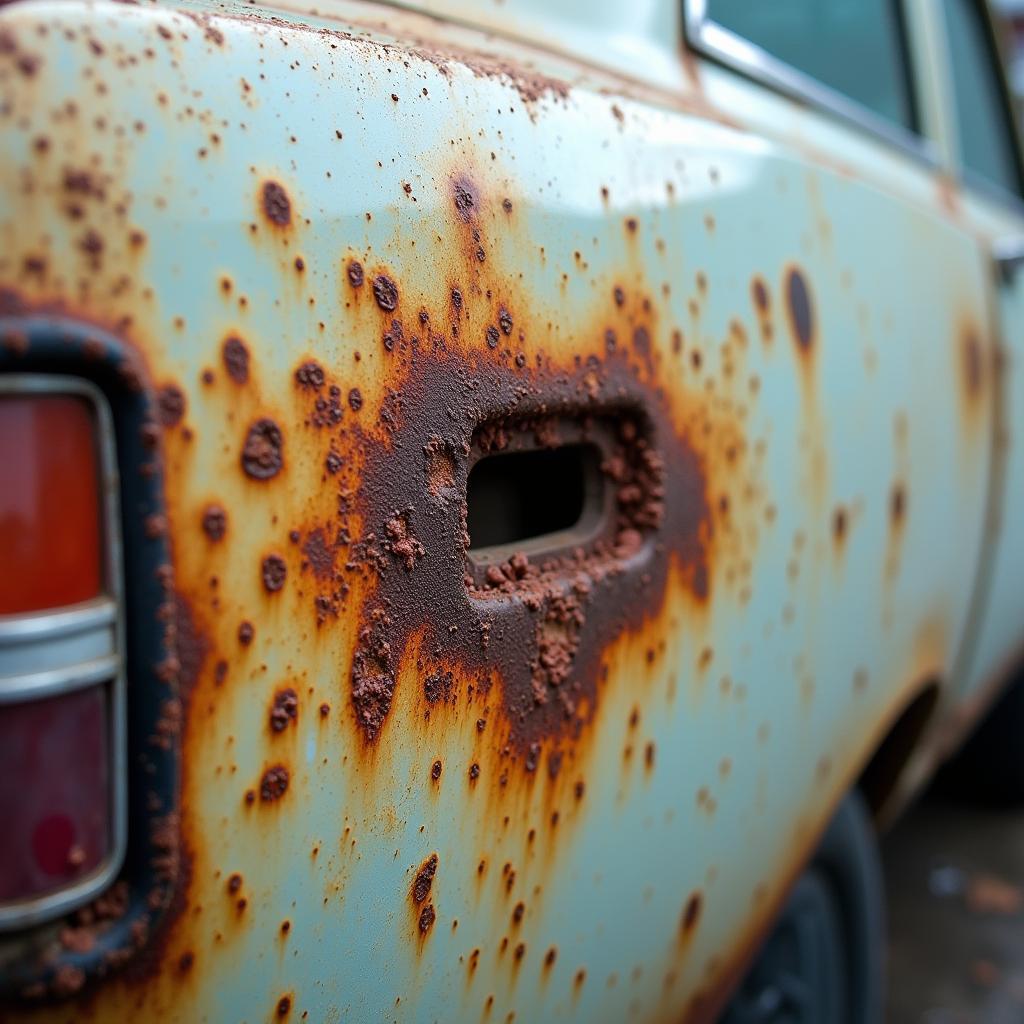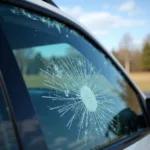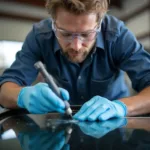When you get your car repaired after an accident, the last thing you want to worry about is rust. You expect the repair shop to do a good job and for the repairs to last. So, it can be frustrating to discover rust forming in the same spot where you had bodywork done, only to find out that it’s not covered under the shop’s warranty.
This article will delve into the reasons why car body repair warranties typically exclude rust repairs, explain the factors that contribute to rust development after an accident, and offer advice on how to protect your car from rust.
Understanding Car Body Repair Warranties
Most reputable car body repair shops offer warranties on their work. These warranties are intended to protect consumers from shoddy workmanship and ensure the repairs are done correctly. However, these warranties usually have limitations and exclusions, and rust repair is often one of them.
Why Rust Repairs are Excluded from Warranties
There are several reasons why car body repair warranties typically won’t cover rust repairs:
-
Rust is often unavoidable: Rust is a natural process that occurs when iron or steel alloys, like those used in car bodies, are exposed to oxygen and moisture. Even with the best repair techniques and preventative measures, it’s difficult to completely eliminate the risk of rust.
-
Determining the source of rust can be difficult: If rust appears after a repair, it can be challenging to determine whether it’s due to improper repair work or factors outside the shop’s control, such as environmental conditions or pre-existing damage.
-
Rust is a gradual process: Unlike other repair issues that might be immediately apparent, rust can take time to develop. This makes it hard to prove that the rust was a direct result of the repair work, especially if it appears months or even years later.
Factors Contributing to Rust After a Car Body Repair
While rust can be difficult to prevent entirely, several factors can increase the likelihood of its development after a car body repair:
-
Improper surface preparation: If the metal surfaces aren’t properly cleaned, treated, and primed before paint application, rust can form beneath the paintwork.
-
Inadequate paint application: Thin or uneven paint layers can allow moisture to penetrate and reach the metal, leading to rust.
-
Environmental factors: Exposure to salt, humidity, and extreme temperatures can accelerate the rusting process.
-
Pre-existing rust: If rust was present before the repair but not addressed properly, it can continue to spread under the new paint.
How to Protect Your Car from Rust After a Repair
While you can’t completely eliminate the risk of rust, you can take steps to minimize the chances of it developing after a repair:
-
Choose a reputable repair shop: Look for a shop with a proven track record of quality repairs and a good warranty.
-
Inspect the repair work thoroughly: Before accepting your car back from the shop, carefully inspect the repaired area for any signs of imperfections in the paintwork, uneven surfaces, or potential areas where moisture could seep in.
-
Wash and wax your car regularly: Regularly washing your car, especially during winter months, can help remove salt and other corrosive materials. Applying wax can provide an extra layer of protection.
-
Address any signs of rust immediately: If you notice any signs of rust, no matter how small, address them promptly. Early detection and treatment are crucial to prevent further damage.
Conclusion
Discovering rust after a car body repair can be disheartening, especially if you expect the repair shop’s warranty to cover it. Understanding why rust repairs are often excluded from warranties and knowing the factors that contribute to rust development can help you make informed decisions about your car repairs and take proactive steps to protect your investment from rust. Remember, choosing a reputable repair shop, inspecting the work thoroughly, and practicing regular car care are essential for minimizing the risk of rust and keeping your car looking its best for years to come.
FAQs
Q: What should I do if I notice rust forming after a car body repair?
A: If you discover rust after a repair, contact the repair shop immediately. While their warranty might not cover rust repairs, they might be willing to inspect the issue and offer a solution, especially if the rust appears to stem from their workmanship. Documenting the rust with photos and keeping records of your communication with the shop is crucial.
Q: How long should a car body repair last before rust becomes a concern?
A: The lifespan of a car body repair can vary significantly depending on factors like the quality of the repair, environmental conditions, and car care practices. Generally, a well-executed repair, coupled with proper maintenance, should last for several years before rust becomes a major concern.
Q: Does car insurance cover rust damage?
A: Typically, standard car insurance policies don’t cover rust damage considered wear and tear. However, if the rust is a direct result of a covered incident, such as a collision that was repaired, your insurance might cover it. It’s best to review your policy or contact your insurance provider to understand your coverage.
Q: Are there any DIY rust prevention methods I can use on my car?
A: Yes, several DIY rust prevention methods can help protect your car. Regularly washing and waxing your car is a good starting point. You can also apply rust-inhibiting primers or paints to vulnerable areas like the undercarriage.
Need more help? Contact us via WhatsApp: +1(641)206-8880, Email: [email protected]. We have a 24/7 customer support team ready to assist you. For more information on car maintenance and repair, browse our website’s extensive library of articles and guides.



